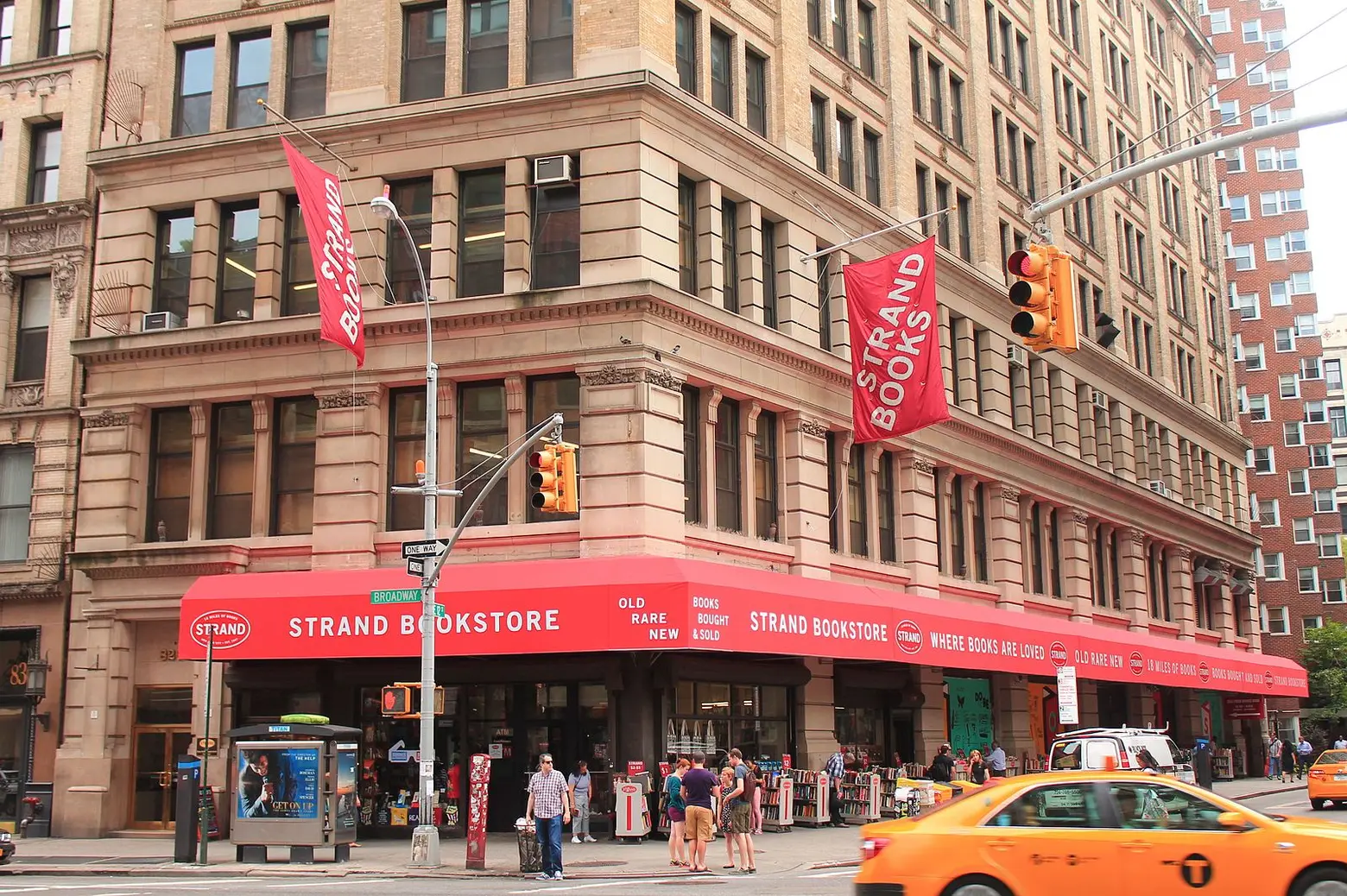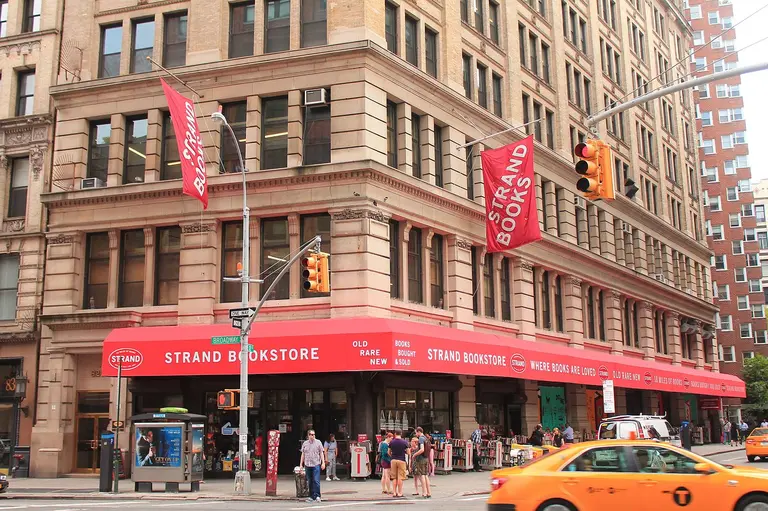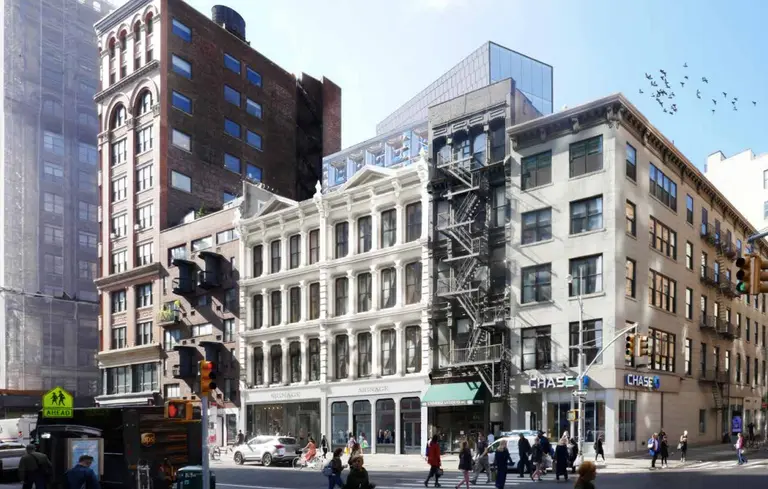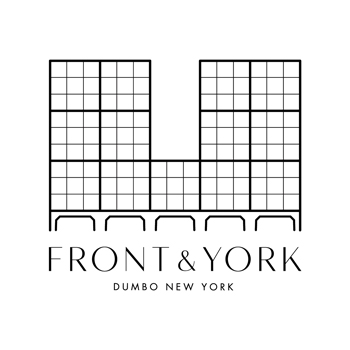Strand bookstore owner offers a compromise in last-ditch attempt to avoid landmark status

Photo via Wiki Commons
In a heated second hearing before the Landmarks Preservation Commission, the owner of the iconic Strand Bookstore, Nancy Bass Wyden, continued her fight to keep the famed bookseller’s building from being designated a city landmark along with seven buildings on Broadway between East 12th and 14th Streets. Instead, Wyden is offering to put in place a historic preservation easement on the storefront, Gothamist reports. The easement would be the result of an agreement between the property’s owner and a nonprofit group that would serve as a steward for the building’s preservation, ensuring that, in this case the building’s facade, would be properly preserved. At a previous LPC hearing The Strand’s owner voiced strong concerns that a historic designation would place crippling restrictions on the scrappy business and potentially threaten its future.
Wyden, whose grandfather founded the Strand in 1927, referenced the tax incentives that Amazon received to relocate to Long Island City at that previous hearing when she said, “The richest man in America, who’s a direct competitor, has just been handed $3 billion in subsidies. I’m not asking for money or a tax rebate. Just leave me alone.”
Wyden’s new proposal would mean she’d work with a nonprofit preservation organization rather than the city. But she may have a tough time convincing the commission: Sarah Carroll, who is both the chair and a commissioner of the LPC, said that the preservation easement was not seen “as a favorable substitute for designation.”
As 6sqft previously reported, the buildings under consideration are adjacent to a $250 million 21-story tech training center set to open in 2020. Since getting the green light in August, the tech hub has been praised for its mission to provide training for New York’s tech entrepreneurs and add up to 600 new jobs, but many preservationists fear that the project will lead to more large-scale development in the area of Union Square.
The Strand has been fighting to stay afloat over the years as a bookseller and retailer in New York City, and in the era of Amazon. The number of bookstores in NYC has decreased by nearly 80 percent over the past 70 years, from 369 in 1950 to only 79 in 2018. The Strand says the landmark designation would limit their ability to perform future upgrades in a timely, flexible manner.
Additional regulations would delay everything from necessary flood repairs to upgrading the awnings or changing the layout of the store, as they would have to defer to the bureaucratic processes of the LPC. In addition, The Strand argues that their building is already overbuilt and has no air rights, so there is no danger of the building becoming just another high-rise, glass building or suite of luxury apartments.
On the flip side, the Historic Districts Council urged the commission to consider the historic significance of the building, which was designed by William H. Birkmire, an architect who claimed to have conceived the structural system in the 1888 Tower Building — considered by some to be the city’s first skyscraper — and the world’s first metal skeleton building without masonry adjuncts. In a written statement, HDC executive director Simeon Bankoff emphasized that the Renaissance Revival-style building represents “an intact work by a figure pivotal in the development of steel frame construction and skyscraper design, as well as a significant contributor to Broadway’s development, and a reminder of the city’s garment-industry history of commerce and labor.”
Executive director of the Greenwich Village Society for Historic Preservation Andrew Berman, who was present at Tuesday’s hearing, said that preservation easements are used both in buildings and sites both landmarked and not landmarked throughout the city. Though he supports the Strand’s landmark designation, Berman has criticized the commission for “cherry picking” properties that have no imminent development pressure. Berman said the commission’s selection of the seven building in question resulted from a privately negotiated deal between City Councilmember Carlina Rivera and Mayor Bill de Blasio.
A vocal group of the store’s supporters–including prominent writers such as Art Spiegelman, Fran Lebowitz, and Gary Shteyngart–has rallied to say that the landmark status would place even more burdens on a business that is already operating with the thinnest margins. The group of about 50 people present at Tuesday’s hearing included journalist and author Naomi Wolf, who asked whether the commission had considered all of the public support for the Strand, including the fact that Wyden had submitted a petition with over 6,000 signatures.
RELATED:
- Beloved bookstore the Strand fights back against landmarking proposal
- Permits filed for 22-story Union Square tech hub with plans for major digital training center
- LPC calendars 7 buildings on Broadway near recently-approved tech hub in Union Square
- Landmarks approves three-story glass addition to Willem de Kooning’s former Union Square studio






















